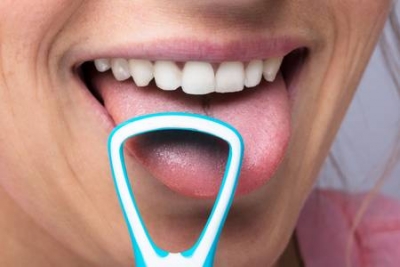
Struggling with bad breath? You’re not alone.
Learn how smoking can affect your teeth and gums and get tips to maintain healthy teeth if you smoke.
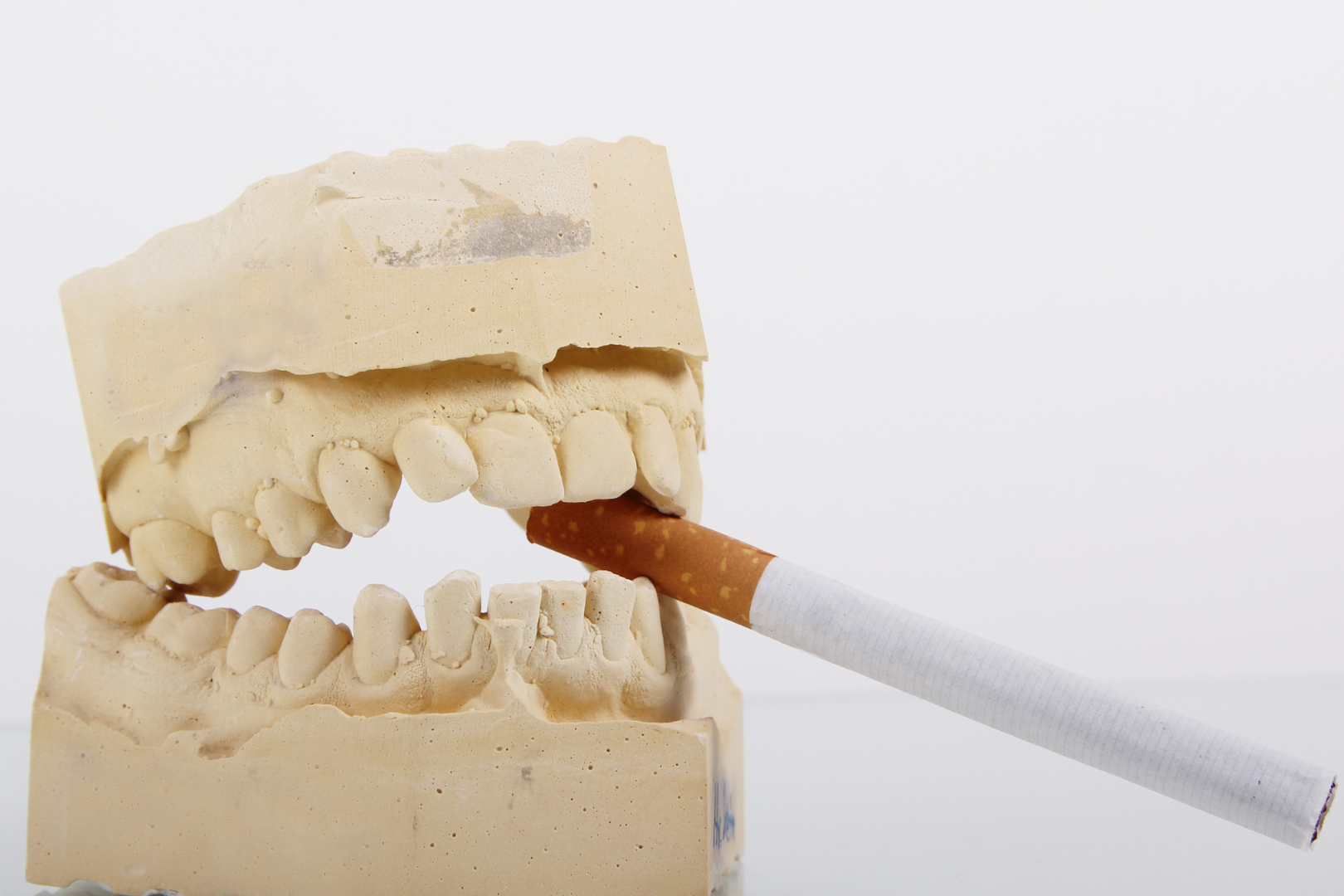
When was the last time you had a quick smoke, thinking, “A few smokes here and there can’t be that bad, right?”
Many smokers assume the damage is mostly limited to their lungs. But here’s the thing: smoking and teeth don’t get along either, and it has a way of creeping into every part of your health, including your gums.
So, let’s break it down and explore how smoking really affects your teeth and gums, and what you can do to maintain your oral health.
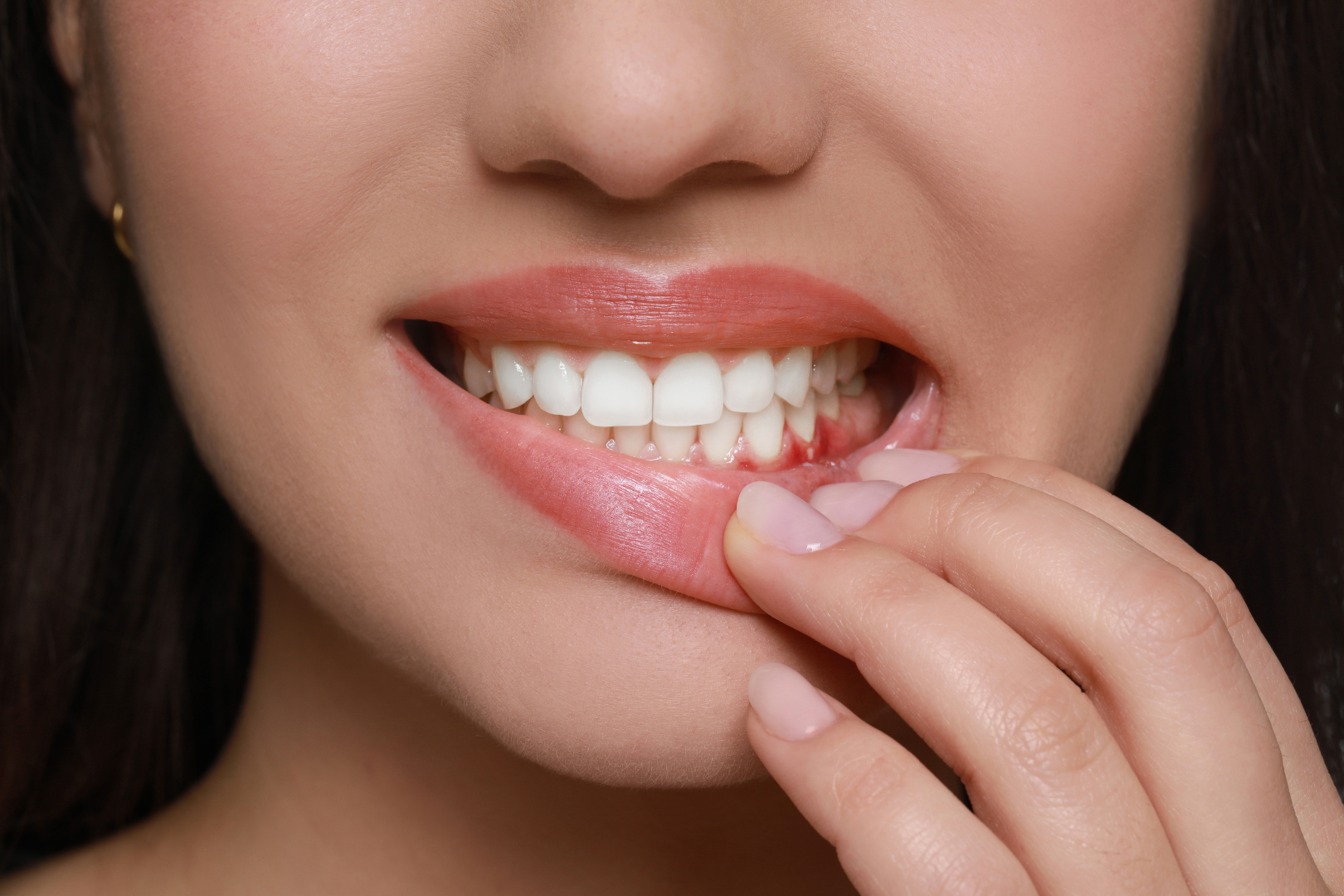
Smoking can cause serious problems for your gums and overall oral health. The harmful chemicals in tobacco make it harder for your mouth to fight infections and heal properly, leading to conditions like gum disease.
Let’s explore how smoking can impact your oral health, starting with gum disease.
Smoking reduces oxygen in the bloodstream, making it harder for infected gums to heal and leaving the body vulnerable to severe gum disease, known as Periodontitis. Poor blood circulation in the mouth limits the ability to fight infections, while bacterial plaque caused by tobacco chemicals worsens the condition.
Smoking can lead to red, tender gums that bleed during brushing or flossing. Over time, these issues can progress into pain when chewing, pus between teeth, receding gums, and even loose teeth. Additionally, smokers may develop smoker’s keratosis, a whitening of the soft tissues in the mouth caused by irritation from tobacco.
Smoking reduces saliva production, the body’s natural defense against bacteria and plaque buildup. Without adequate saliva, dry mouth becomes common, leading to faster plaque accumulation, damaged enamel, and increased risk of tooth decay.
The tar and nicotine in tobacco stain teeth yellow and, for heavy smokers, can turn them a brownish color over time. These stains are difficult to remove and may even resist professional whitening. Smoking also leaves a lingering odor, causing persistent bad breath known as halitosis, that’s tough to manage.
While smoking is known to increase the risk of throat and lung cancer, it also significantly raises the likelihood of developing mouth cancer. Tobacco chemicals damage oral tissues, making smokers more prone to serious conditions such as tumors or lesions in the mouth.
Smokers are at higher risk of developing dry socket, a painful complication after tooth removal where the healing process is delayed. Smoking reduces blood flow to the affected area and interferes with clot formation, leading to exposed bone and heightened sensitivity in the mouth.
Smoking can dull the sense of taste over time, making it harder to fully enjoy food and drinks. This reduction in taste sensitivity often goes unnoticed until it becomes significant, affecting a smoker’s overall quality of life.
Now that you understand the link between smoking and teeth or gum issues, you may wonder how to tell if you’ve got gum disease. The signs and symptoms of gum disease can be difficult to detect, especially for smokers, as smoking can mask many of the usual indicators. However, there are several warning signs to watch out for:
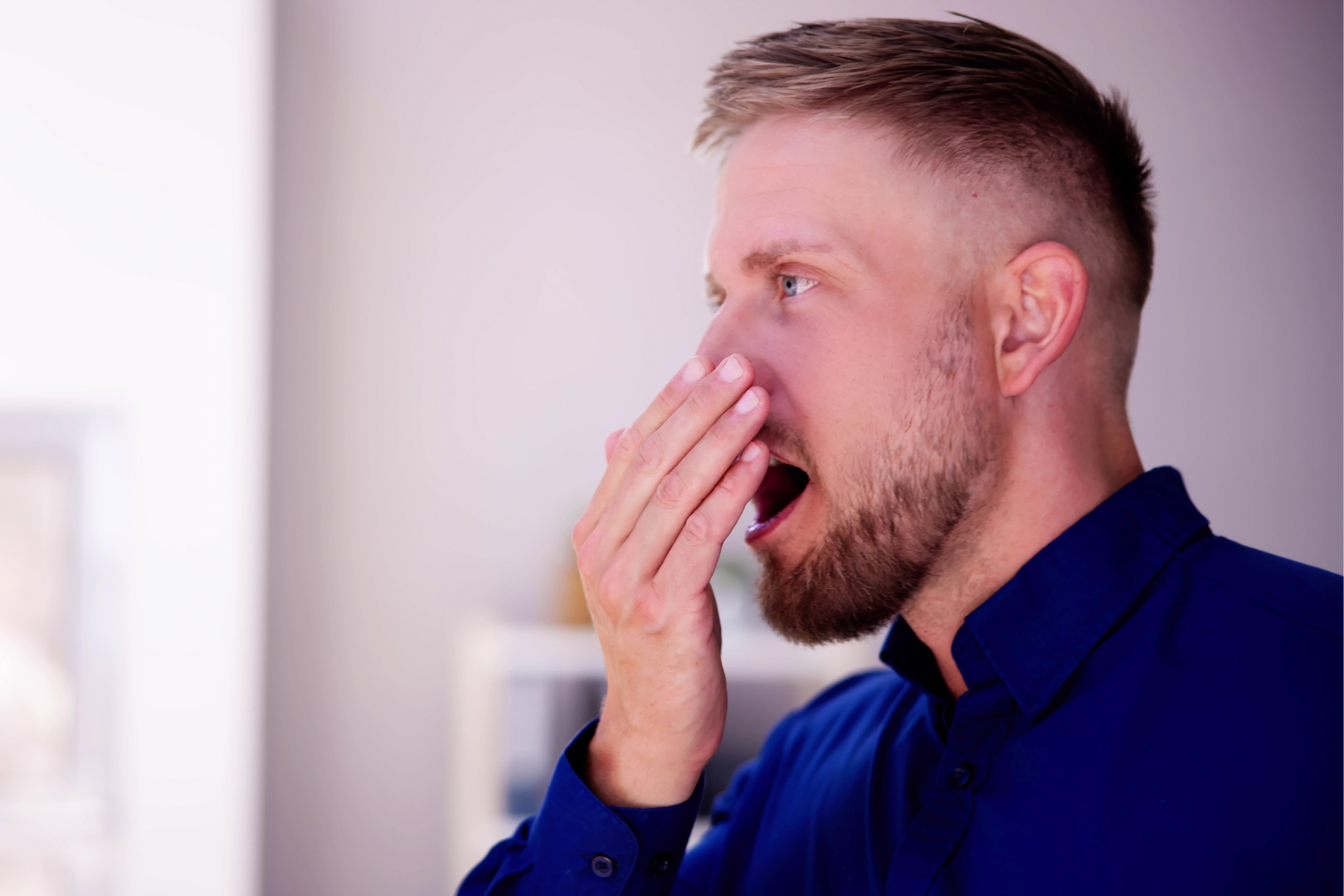
Because smoking alters the symptoms and progression of gum disease, it’s essential for smokers to stay vigilant about oral health, even if the typical warning signs aren’t apparent. Regular dental check-ups are crucial for early detection and prevention of gum disease.
Smoking exposes you to a higher risk of complications with your oral health. The best way to protect yourself is to quit the habit, but that’s easier said than done.
That doesn’t mean there’s nothing you can do. Smokers can still take preventive measures to reduce the harmful effects by following these oral hygiene tips.

You need to commit to your oral hygiene routine. Brush properly at least twice a day and use a good quality toothbrush. Do not subject your teeth and gums to aggressive brushing as this could cause damage to the tooth structure near the gums and also result in gum recession.
Consider using a toothpaste specially formulated for smokers. There are toothpastes targeting nicotine and tobacco stains to help keep your teeth white. There are also the fluoride toothpaste variants that protect the gums.
Opt for food in high calcium and fibre. They help strengthen the enamel, neutralise mouth acids and act as a natural teeth cleaner. Trade some of your sweets and starchy snacks for crunchy fruits and leafy greens.
Smokers sometimes notice a yellow, brown or black discolouration of the tongue. Using a clean toothbrush or tongue scraper to clean your tongue will improve the situation, and should ideally be performed on a daily basis.
According to a study, cigarette smoking promotes the growth of bacteria. To help counter this, rinse with an antibacterial mouthwash. Swish it in your mouth properly before spitting. You can ask our dentists for a mouthwash recommendation.
Frequent consumption of water can counter the dehydrating effects of smoking. It is vital for smokers to maintain a high standard of dental hygiene as they are at a higher risk of decay and gum disease. This also helps to reduce bad breath.
Rinsing or brushing your teeth after smoking can help to reduce the degree of staining. It decreases the time the nicotine and tar sit on your teeth and gums.
Timely professional dental cleanings are crucial for your oral care. Always schedule regular dental appointments to keep your teeth and mouth in check.
Of course, butting out for good is the best way to prevent smoking-related oral health issues. If you’re struggling and need help to quit smoking, talk to your dental health team or a doctor who can put together a tailored quit smoking plan.
Smile Place Dental recommends using Quitmate, a new quit smoking program that has been designed to help you quit smoking, with a group of doctors and support staff available every step of the way.
Learn more about Quitmate and book an appointment with a Quitmate doctor here.
Author Summary – Dr Chitra Rao

Dr. Chitra Rao has over a decade of experience in dentistry, specifically in the field of cosmetic and orthodontic treatments. Dedicated to achieving optimal results, she takes a detailed and personalised approach to creating beautiful, confident smiles for her patients. Outside of dentistry, Dr. Chitra enjoys staying active, traveling, and spending time with her family.

Struggling with bad breath? You’re not alone.
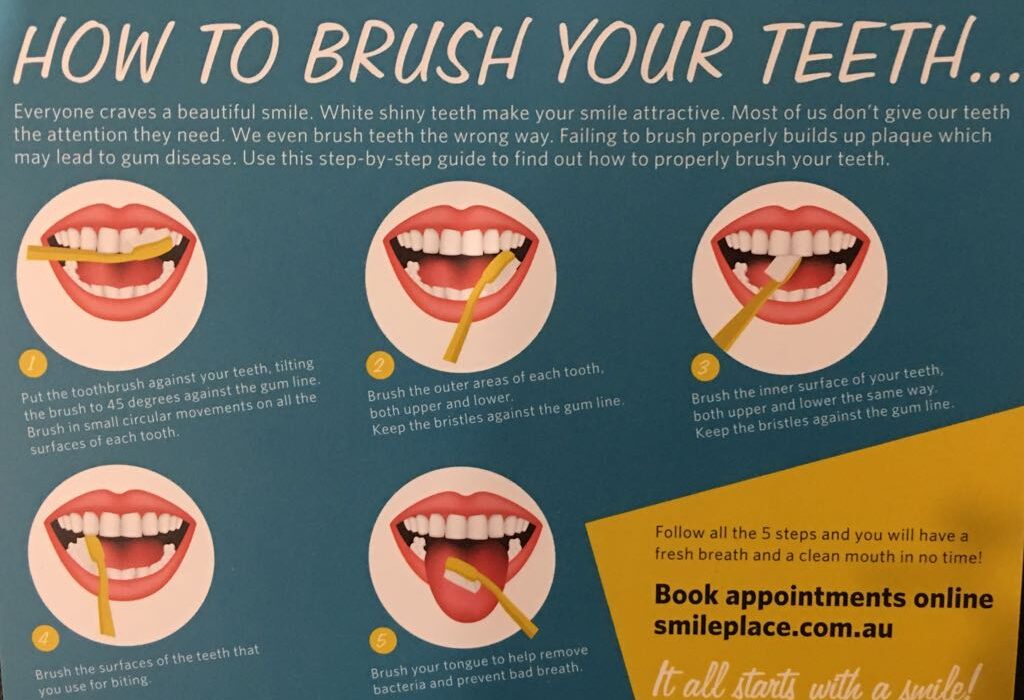
Keep it clean, keep it bright with these simple tips.
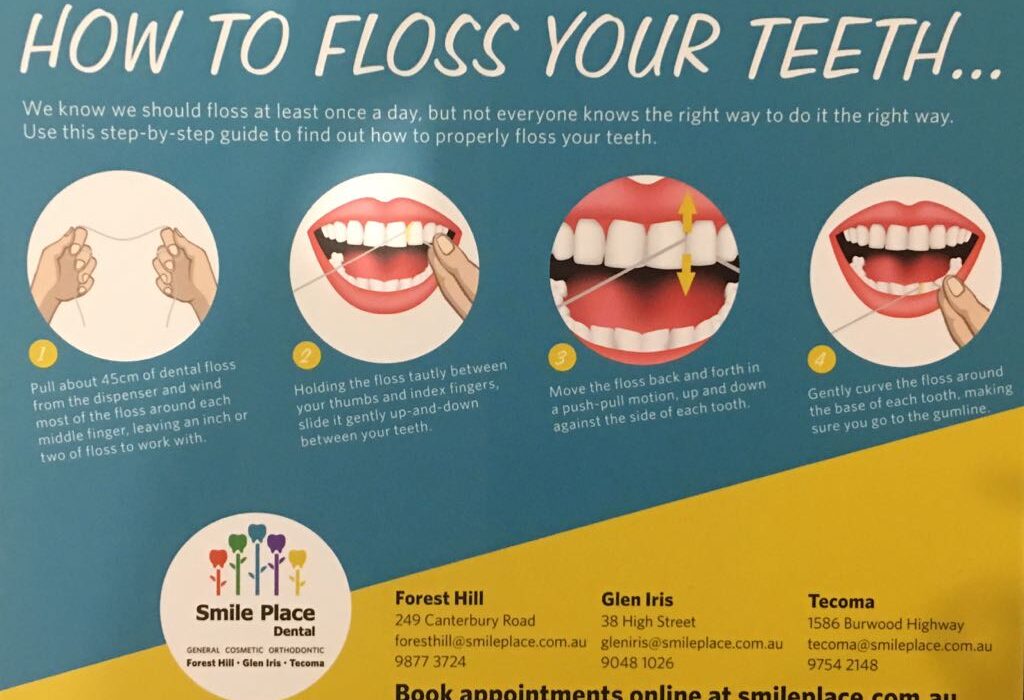
Do you brush twice a day, use a mouthwash, and still struggle with bad breath or surprise cavities? If so, the problem may be caused by inconsistent flossing. Most people skip flossing and those who do floss, often don’t do it right, leaving behind plaque and food debris. The good news? Flossing properly takes just […]